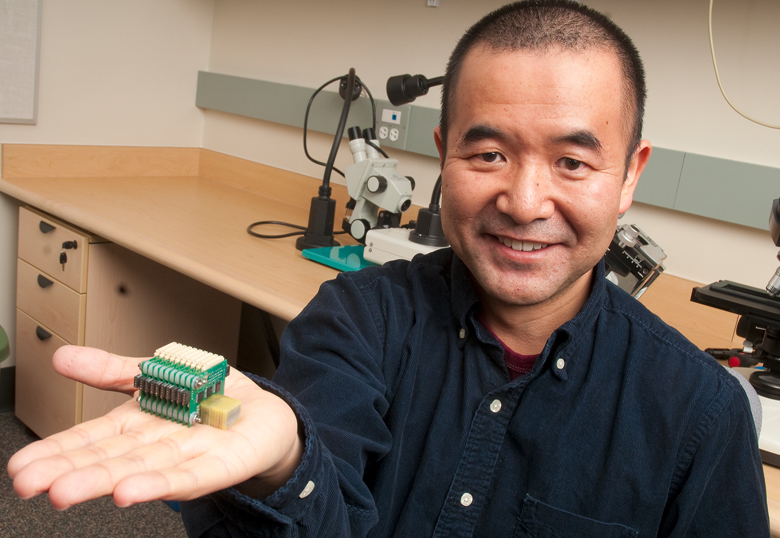A group of University of Lethbridge neuroscience researchers have had their work in memory published in the prestigious Philosophical Transactions of the Royal Society B, highlighting the Canadian Centre for Behavioural Neuroscience’s (CCBN) expertise in memory research.
“That University of Lethbridge researchers have contributed four research papers to this special issue on memory reactivation demonstrates our excellence of research and strength in this field,” says Dr. Masami Tatsuno, a neuroscience professor involved in the research.
“Our research in memory is helping us understand how memories are formed in the brain and our findings will help unravel the roots of memory disorders like dementia,” says Dr. Bruce McNaughton, director of the CCBN’s Polaris Brain Research Group.
Memories are formed as result of interactions between different areas of the brain, with the hippocampus and neocortex among the most important structures for memory processing. Evidence also suggests that neural activity patterns of recent experiences in these structures are reactivated during rest, including sleep.

In another study, Dr. Michael Eckert, a U of L post-doctoral fellow who works with Tatsuno and McNaughton, investigated reactivation of motor memory by recording the activity of cells in the rat’s motor cortex. They showed that reactivation occurs not only in SWS but also in rapid-eye-movement sleep (REM). Their results provide the first demonstration that reactivation of motor-skill memory occurs in REM sleep. They also showed that animals learned the skill better when SWS reactivation and REM reactivation occurred on the same day, suggesting that coordinated reactivation in both sleep stages is beneficial for motor learning.

McNaughton’s group also examined activity in the retrosplenial cortex (RSC), an area of the brain involved in learning and navigation. Their findings indicate that the RSC is involved with processing spatial information during rest, confirming the idea that the brain likely uses off-line periods to consolidate recent memories.
The takeaway message is pretty simple.
“A good night’s sleep is essential for a good memory,” say Tatsuno and McNaughton.
